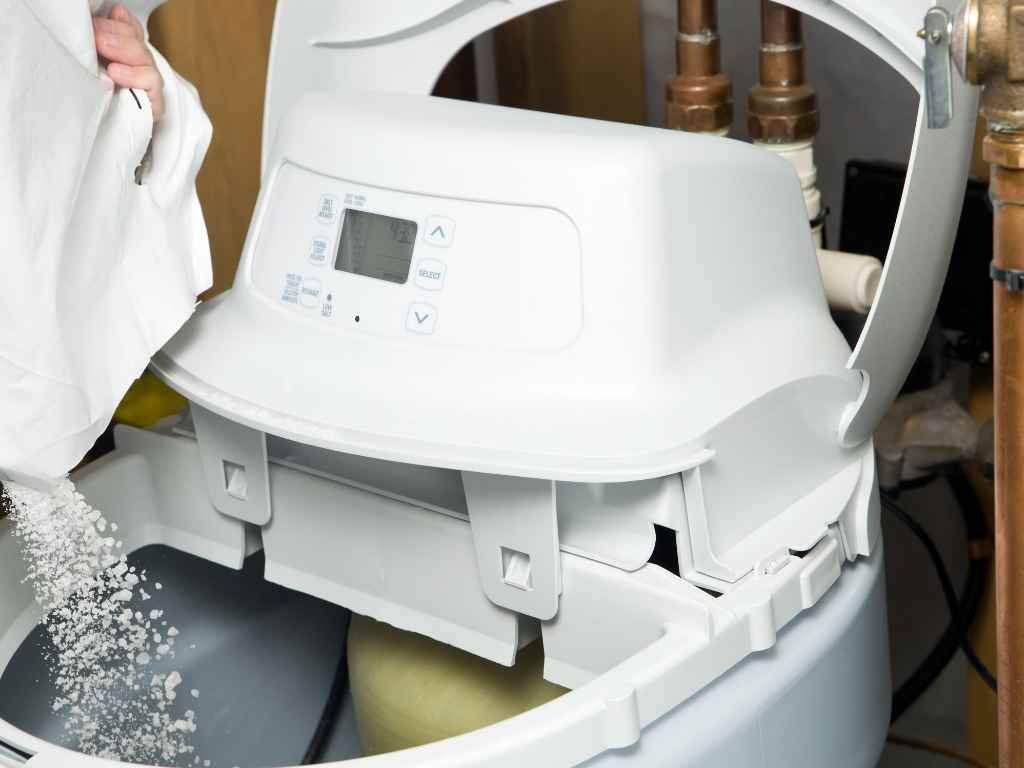Water softeners are often used to improve the quality of hard water in homes, but the idea that they may make you sick is not uncommon. In this article, we will answer the question: can water softeners make you sick, and what you can do to minimize any potential health risks.
What are Water Softeners?
Water softeners are systems that are designed to remove excess minerals, such as calcium and magnesium, from hard water. Hard water can cause a variety of problems, including dry skin, damage to pipes, and the buildup of mineral deposits in appliances. Water softeners can improve the quality of hard water, making it more suitable for drinking and other household uses.
Can Water Softeners Make You Sick?
The idea that water softeners can make you sick is not well-supported by scientific evidence. While water softeners do add a small amount of salt to the water supply, the levels are typically well within safe limits set by regulatory agencies. Additionally, water softeners are designed to remove minerals from water, not to add harmful contaminants.
What are the Risks Associated with Water Softeners?
While water softeners themselves are not likely to make you sick, there are some potential health risks associated with their use. For example, if the water softener system is not properly maintained, it can allow bacteria and other contaminants to grow. Additionally, if the water softener is not properly installed, it can cause leaks or other issues that can affect the quality of your water.
How to Minimize the Health Risks Associated with Water Softeners
To minimize the health risks associated with water softeners, it is important to properly maintain and install the system. This may include regular cleaning and disinfecting, as well as ensuring that the system is installed by a licensed professional. Additionally, you may want to consider using a water filtration system in addition to your water softener to further improve the quality of your water.
Frequently Asked Questions about Can Water Softeners Make You Sick?
What is a water softener?
A water softener is a device or system that is designed to remove excess minerals, such as calcium and magnesium, from hard water. This results in improved water quality and reduced mineral buildup in pipes and appliances.
Can water softeners make you sick?
The idea that water softeners can make you sick is not well-supported by scientific evidence. While water softeners do add a small amount of salt to the water supply, the levels are typically well within safe limits set by regulatory agencies. Additionally, water softeners are designed to remove minerals from water, not to add harmful contaminants.
What are the risks associated with water softeners?
While water softeners themselves are not likely to make you sick, there are some potential health risks associated with their use. For example, if the water softener system is not properly maintained, it can allow bacteria and other contaminants to grow. Additionally, if the water softener is not properly installed, it can cause leaks or other issues that can affect the quality of your water.
How can I minimize the health risks associated with water softeners?
To minimize the health risks associated with water softeners, it is important to properly maintain and install the system. This may include regular cleaning and disinfecting, as well as ensuring that the system is installed by a licensed professional. Additionally, you may want to consider using a water filtration system in addition to your water softener to further improve the quality of your water.
Is it safe to drink water from a water softener?
Yes, it is generally safe to drink water from a properly maintained and installed water softener system. However, if you have any concerns about the safety of your water, it is best to consult with a licensed professional or a water treatment specialist.
What are the benefits of using a water softener?
The benefits of using a water softener include improved water quality, reduced mineral buildup in pipes and appliances, and improved skin and hair health.
How often should I maintain my water softener?
The frequency of maintenance required for a water softener will depend on several factors, including the type of system, the water hardness, and the amount of use. It is best to consult with a licensed professional or a water treatment specialist for specific recommendations for your system.
What should I do if I suspect my water softener is not working properly?
If you suspect that your water softener is not working properly, it is best to contact a licensed professional or a water treatment specialist for inspection and repair. Ignoring the issue can lead to further problems and potential health risks.
Conclusion:
In conclusion, while water softeners themselves are not likely to make you sick, there are some potential health risks associated with their use. It is important to properly maintain and install the system to minimize these risks and to ensure that your water remains safe and clean.
Additionally, using a water filtration system in addition to your water softener can further improve the quality of your water. If you have any concerns about the safety of your water or the effects of your water softener, it is best to consult with a licensed professional or a water treatment specialist.
Remember, ensuring the safety of your water supply is critical for your overall health and well-being, so it is important to stay informed and proactive when it comes to water treatment.

